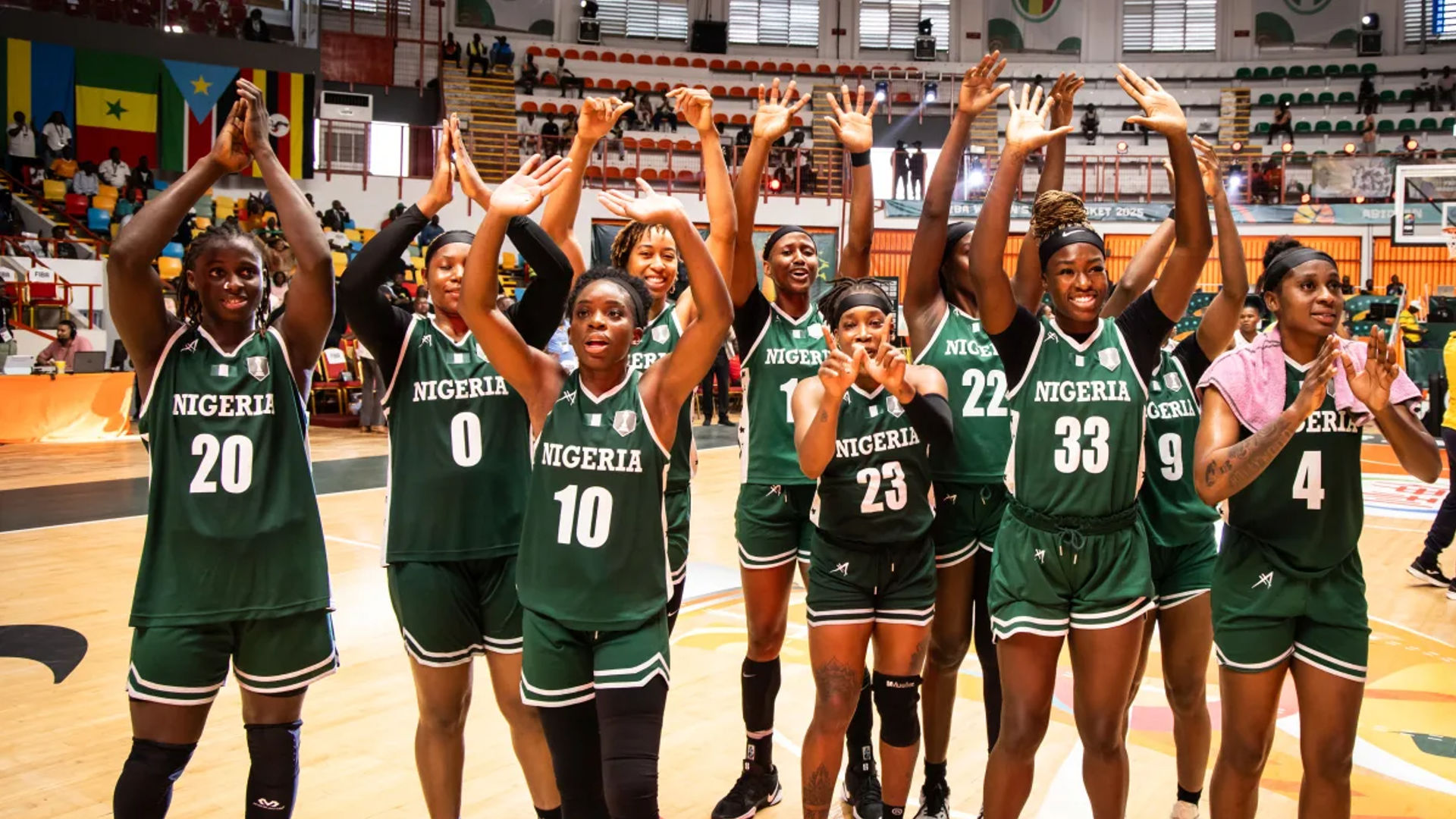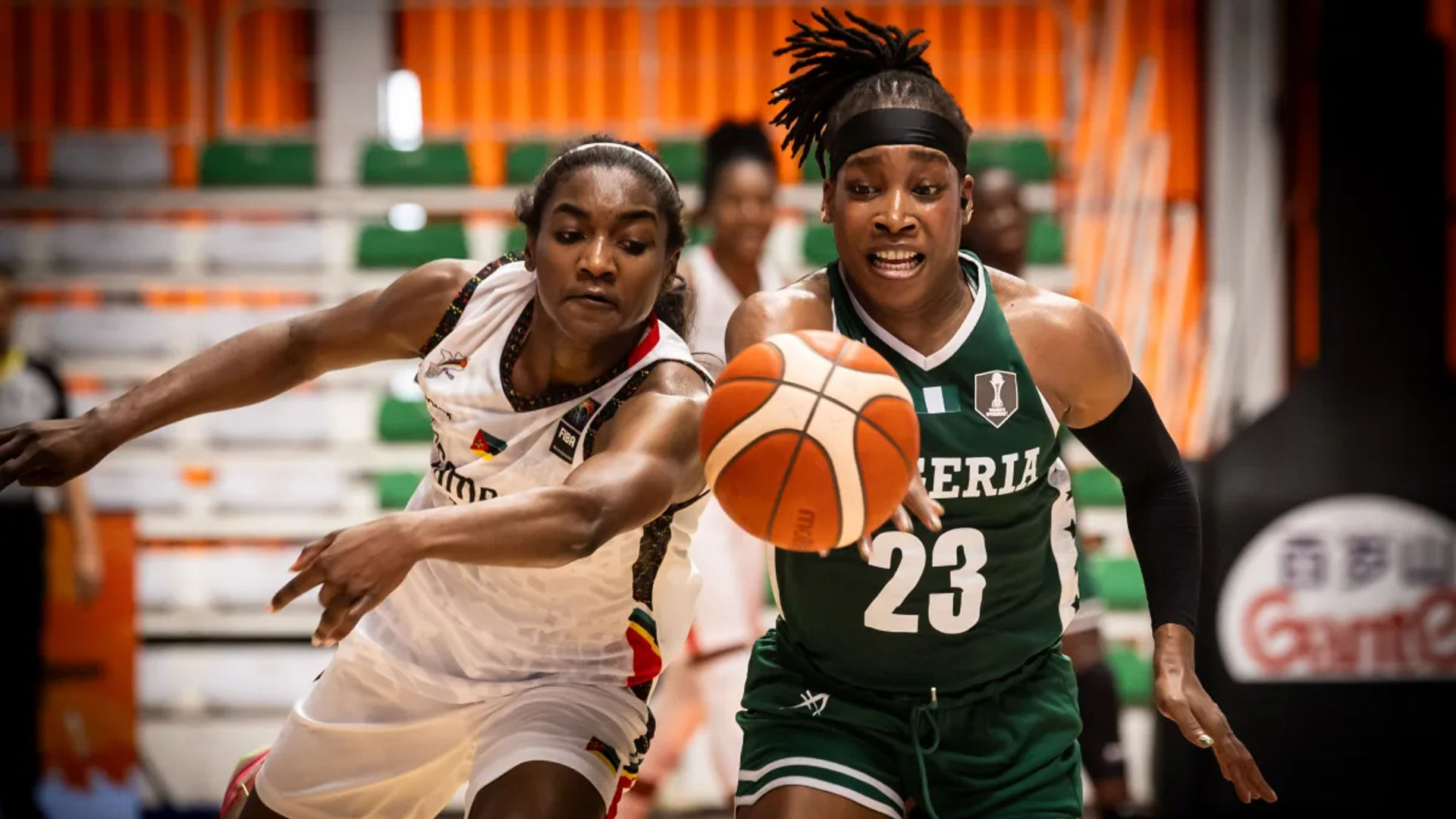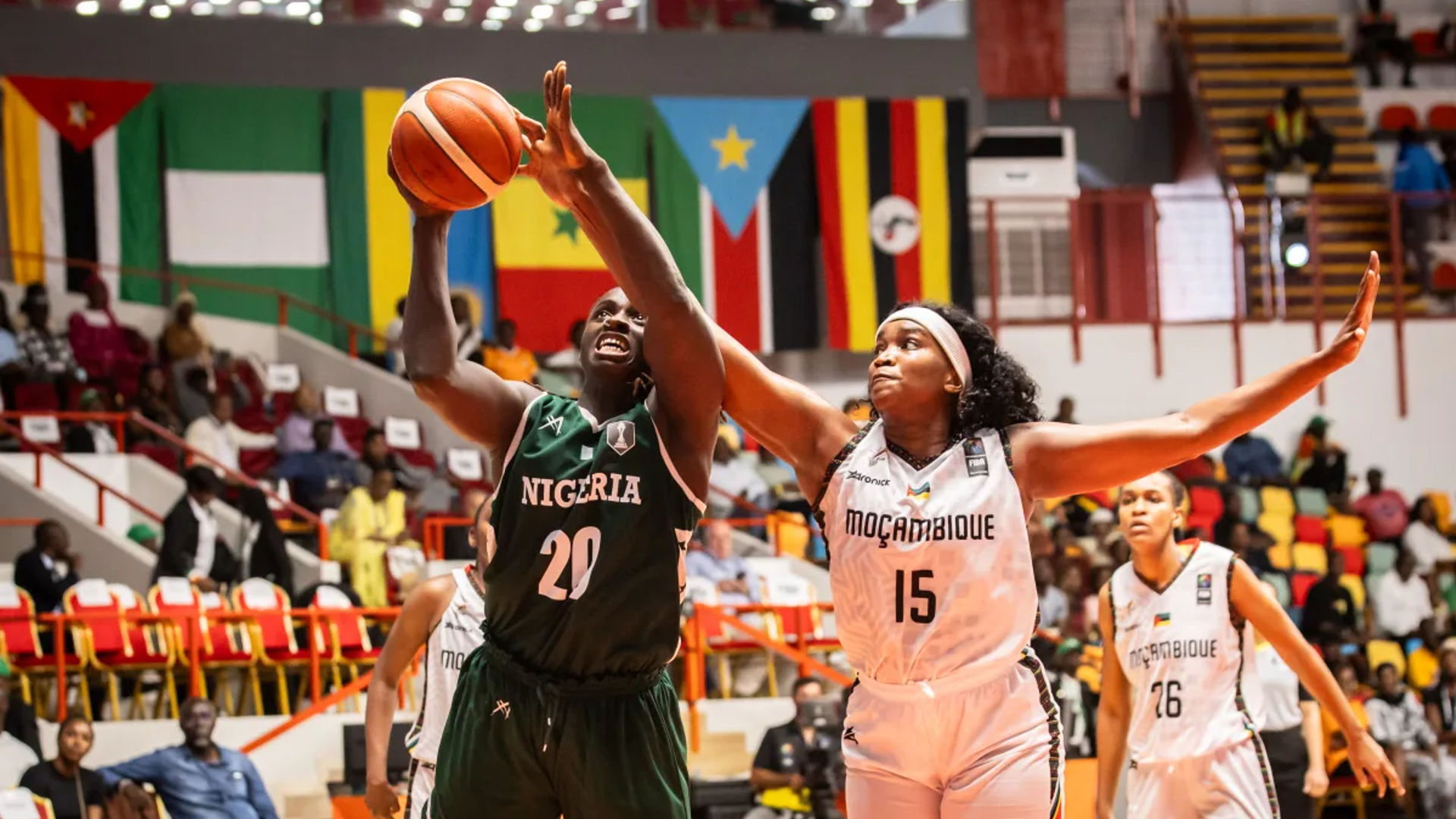Nigeria extended their AfroBasket dominance with a hard-fought 60-55 win over Mozambique, securing a quarterfinal spot and stretching their unbeaten run to 26 games. Ezinne Kalu stepped up again, proving why she’s a former MVP.
Last Updated on
July 28, 2025


It’s been a decade, and no one has figured them out. Nigeria entered the 2025 Women’s AfroBasket with a legacy to defend, and they have just extended it. With a gritty 60-55 win over Mozambique, the D’Tigresses not only punched their ticket to the Quarterfinals—they preserved a flawless streak that now stretches to 26 consecutive AfroBasket victories since 2015.
“We started out really slow. We didn't play Nigerian basketball. We gave up too many open shots,” Ezinn Kalu admitted post-game, summing up the rocky beginning that nearly cracked the champions' composure.
Make no mistake: this wasn’t easy. Mozambique came hunting. Their energy, physicality, and desperation made it a showdown, not a stroll. But championship DNA does not fold under pressure. Nigeria absorbed the blows, regrouped, and in the final minutes, delivered the kill shot.
For almost the entire game, the two sides exchanged momentum like heavyweights locked in the 12th round. Nigeria took an early lead, but Mozambique roared back, taking a 28-24 advantage into halftime. It wasn’t just scoreboard pressure—they had belief, they had momentum, and they had the crowd.

“Mozambique is a great team. You can't sleep with them,” Kalu warned. “We allowed them to drive the penalty too much. They had about eight offensive rebounds. So we just didn't come out and play Nigerian basketball.”
Then came the fourth quarter. Nigeria was trailing 43-42, wobbling, but not broken. That’s when Promise Amukamara lit the fuse with a clutch three-pointer. The lead changed hands, and from that point on, Nigeria never looked back.
Ezinne Kalu, 2019 AfroBasket MVP, turned up the volume. She wasn’t just effective—she was disruptive. She blew up Mozambique’s offense, picked pockets, and led transition charges with ruthless efficiency. Her 16 points and five steals told part of the story. The rest came at her timing. Every impact play came when the game was tipping toward danger. She played like a former MVP—and looked like someone hungry for another title.
“In the second half, coach said: "Listen, it's time to turn it up. It's time to play Nigerian basketball. Third quarter is a new game,” remembered Kalu. “We just came out with a little more energy.”

But it wasn't a solo act. Murjanatu Musa racked up a double-double with 12 points and 12 rebounds, battling in the paint like the game depended on every box-out. Nigeria's defensive intensity soared in the closing stretch, as Mozambique began to unravel—both on the court and on the bench.
With just over four minutes to play, Mozambique suffered two crippling losses: Leia Dongue and Carla Covane both fouled out. Dongue had been their emotional core, and Covane their muscle under the rim. Without them, Mozambique's engine sputtered. Nigeria smelled blood. They pounced, applying a suffocating defense and capitalizing on every mistake. And there were plenty. Mozambique turned the ball over 20 times. Nigeria turned 20 errors into 22 points. That math doesn't lie.
.jpg)
Still, it was now all over. Nigeria’s head coach, Rena Wakama, was hit with a technical foul in the second quarter—a sign of how tense and tight this matchup became. Mozambique believed they could end the streak. They were wrong.
“We know we're a great team. But sometimes we get in our head. Sometimes we get a little lazy,” Kalu reflected. “Nobody wanted to see Nigeria at the top. Nobody wanted to keep seeing us win. So we've got to keep reminding ourselves.”
Ten years. Zero defeats. Twenty-six straight wins. No other team in Women’s AfroBasket history has ever come close. This isn’t just a run. It’s a dynasty in motion.
Nigeria didn’t dominate this game. They survived it. And that might be even more telling. Champions don’t always win pretty. They win when it counts. And now, they’re headed to the quarterfinals—not just undefeated this year, but undefeated for a generation.
“Right now, we're still not playing Nigerian basketball. But I think we can get more,” Kalu said.“We're going to recover, watch some film, see what mistakes we did and correct those mistakes in practice… because people are pushing. And if you want to play Nigerian basketball, it's got to be one game at a time.”
The message is clear: the road to the AfroBasket crown still runs through Nigeria.
[Photography Courtesy of FIBA]